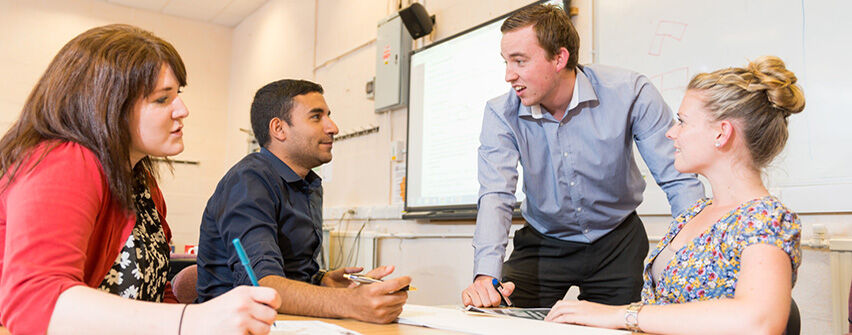This blog begins by highlighting briefly the excruciating demands of embarking on doctoral research. It then makes a case for how, from a personal perspective, I feel the experience can be enriched by seizing the structural opportunities provided by Birmingham City University’s (BCU) EdD format as contrasted with the traditional doctoral pathway.
The experience of doctoral-level research is highly individually driven and requires a great deal of commitment. Moreover, it requires a tenacity towards detailed study and the development of a carefully chosen, well-defined, area of interest to make both an original contribution and to assist in establishing new frontiers in educational research.
There are many considerations when choosing to embark on doctoral research, including: managing expectations to craft your own research topic, except when funded for a specific project; strategising how you intend to explore your theme; attempting a critical justification of both your method and the study itself; and considering the issue of validity, or whether there is a real and original problem to resolve. Bloom's (1956) taxonomical scale forces you to go beyond simply regurgitating facts, into a journey of critical evaluation and creativity of content. How each researcher does this is a question of their ability and their commitment to their self-defined targets.
Alongside this individual focus, there is also a developing awareness of the importance of participatory and collaborative skills. While attending seminars or conferences may not seem radically useful, especially if divorced from your areas of interest, listening to others' perspectives on their labours in reading and hearing the way that they articulate their research and structure their paper can become an important and supportive fuel for persevering with your individual project.
The EdD programme in Health Education and Life Sciences in BCU, in my experience, creates an initial platform for students to have a communal space for learning, sharing ideas, and presenting their work to each other. This communal space sits alongside the recognition that further down the years the research will gradually narrow down to areas of individual interests, and independent writing.
The implication of the EdD model means a conscious effort is made towards creating space for learning, as well as the opportunity for developing a shared habitus. And because the EdD course at BCU presently comprises solely a part-time option, it allows for the fine balance of developing educational practice simultaneously to research practice. This makes for effective academic action and productive work towards your Continuous Professional Development. Work life is encouraged and hardly affected, and individual research is also highly recommended at one’s individual pace and with the opportunity for brainstorming with others.
Although I have enumerated several positives, it remains to be seen the impact the melting pot of researchers has on each person's sense of positionality. The traditional doctoral route would, from the start, set each student off on their own agenda, but tertiary institutions are beginning to recognise the benefits of rigorous peer collaboration, and embedded structured seminars from a wide range of educational experts. The BCU EdD model incorporates the need for summative early assessments on essays, on an identified topic for the group, marked by several external examiners. Also given cognisance, is the addressing of issues such as work-life balance, developing social status and etiquette, enhancing professional research skills, scaling isolation hurdles and uncertainties of requirements, and perhaps in some cases a host of other issues.
The experiences I have had to-date on my EdD journey have opened up new educational pathways and ways to submit my work for supportive scrutiny. Time will tell if these measures are too far-reaching, or whether the next generation of budding researchers are emerging.
References
Bloom, B., Krathwohi, D., and Masia, B. (1956) Taxonomy of Educational Objectives: The Classification of Educational Goals. New York: Longman.

